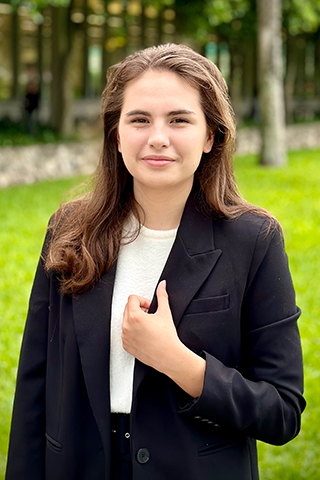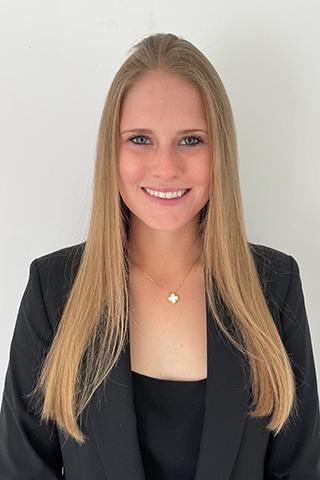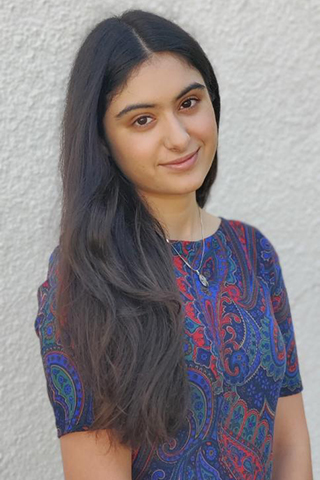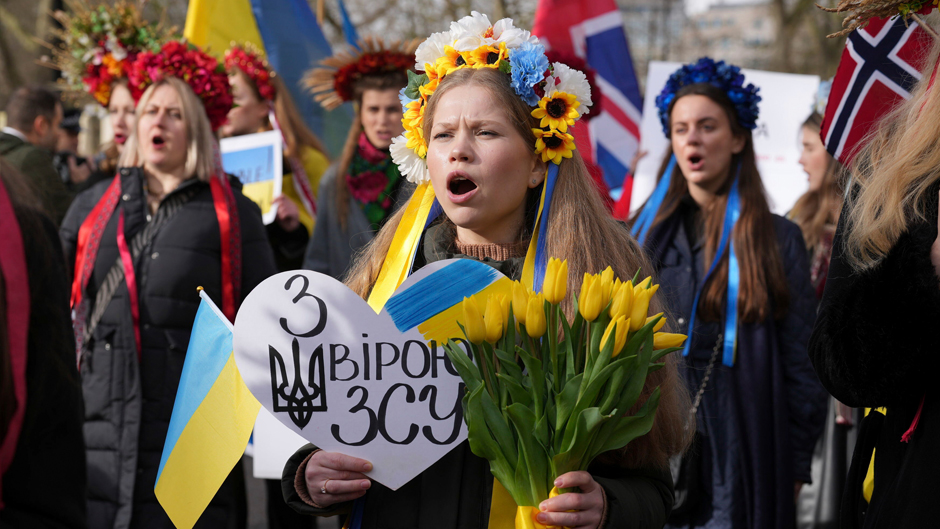Two years after Russia invaded Ukraine, the devastating conflict appears more entrenched than ever, both on the battlefield and in the global arena.
Students in a Russian Politics class at the University of Miami engaged in a semester-long project to forge potential sustainable solutions to the strife are confronting the same frustrations. Yet their model—researching the historical grievances and seeking to understand the security and identity concerns of the major nations—poses an alternative pathway that global actors might imitate.

“We’re trying to get all the [nation-state] actors to figure out their security interests—what they need for themselves to feel comfortable on an international stage,” said Sarah Schuringa, a senior majoring in international studies and political science.
“At the end of the semester, we’ll sit down together and talk about our own actors’ ontological security and see if there’s a sustainable way in which we can end the war,” added Schuringa, who has focused on the Middle East and China in her studies and wanted to know more about Russia.
For this problem-based learning class, Dina Moulioukova, a senior lecturer in the College of Arts and Sciences Geography and Sustainable Development Department and the International Studies Department and the co-founder of the Global Security Initiative, has challenged the students to imagine a future world free of conflicts and to develop a sense of agency around building sustainable peace as they develop a blueprint to resolve the conflict.
Students are assigned to five separate groups representing the states influencing the conflict—Ukraine, Russia, the United States, China, and the European Union—and tasked with researching their respective national anxieties about identity, autonomy, and belonging.
The focus on identity and ontological security, an approach that differs from traditional international studies lenses, has been particularly insightful for students such as Anastasiia Hadomska, a first-year student from Ukraine.

“Identity is a very fluid concept, and so it’s helpful to look at presidents and political figures because they’re the ones who determine the way that identity is going to work. They create the narrative,” said Hadomska, who brings a trove of understanding both personal and historical to her group’s classroom task.
To develop their stances, students have been analyzing a wide range of materials including a recent Tucker Carlson interview with Russian President Vladimir Putin, Ukrainian President Volodymyr Zelensky’s Instagram account, news outlets, research and scientific journals, and recent documentaries such as Netflix’s “Winter on Fire: Ukraine’s Fight for Freedom” and Frontline’s “20 Days in Mariupol.”
The class recently hosted Ukrainian journalist Elina Beketova, an in-residence fellow with the Democracy Fellowship program at the Center for European Policy Analysis.
Hadomska, who speaks and reads both Russian and Ukrainian, has been especially helpful to her team.
“History is the key to understanding this conflict,” said Hadomska, in referencing a commission report that was generated jointly between Russia and Ukraine in 2014 to try and bring peace. “The only thing the two countries determined was that their historical visions were diametrically opposite. The war started because of history, grievances from the past—and we need to think of how history came to help us in that.”
Sarah Schuringa, whose group is focused on the EU, noted that Russia feels threatened by what it perceives as a challenge in its sphere of influence by the European Union’s various integration projects. As part of the proposal her team is developing, she suggested finding some alternative nonmilitaristic way for Russia to exercise its influence.

Michaela Rae White, a senior majoring in international relations and pre-med, took the class because the war had been so much in the spotlight and she wanted to glean a more comprehensive understanding of the conflict.
“I’ve never been part of a class system like this before,” said White. “I’m a huge fan of problem-solving because it uses critical thinking. I like that we’re presented with a problem and that we’re asked to rely on our own opinions and our classmates’ opinions supported by research and empirical evidence to form a reasonable discourse as to what potential solutions to the problem might be.”
Her group, which is focused on analyzing China, includes two Chinese students. On issue of sovereignty, a key issue in the Russia-Ukraine conflict and also for China’s claim to Hong Kong and Taiwan, she takes an opposing view to her groupmates’ stance.
“But for the betterment of ourselves and to put out good work in the class, we’re able to set aside our differences and learn from each other,” said White, adding that she’s grateful for the opportunity to take such an innovative class.

